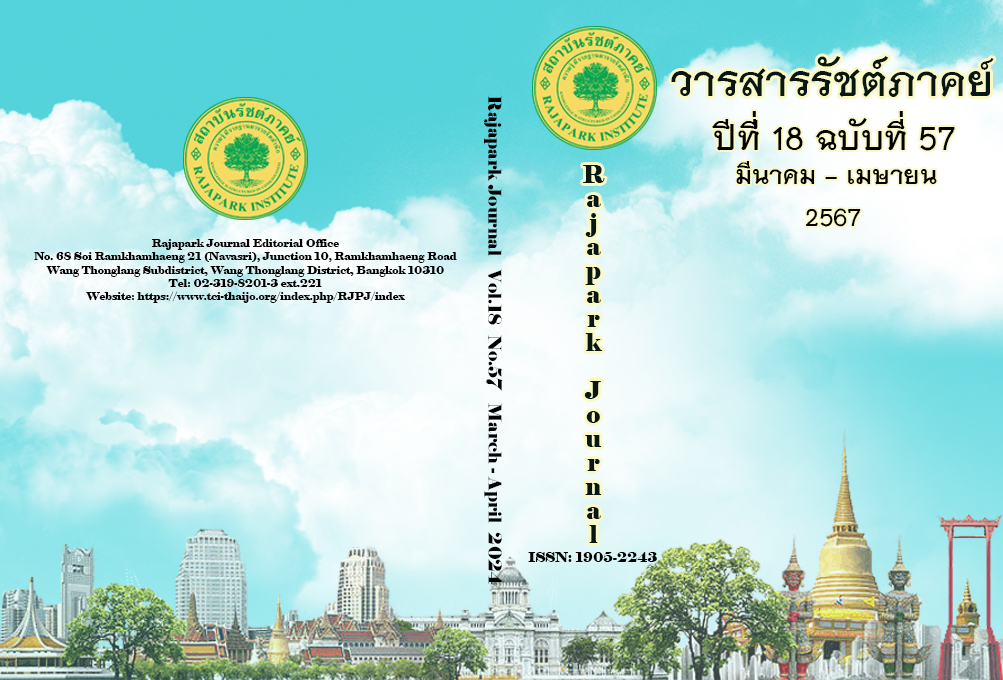การบริหารการศึกษาแบบมีส่วนร่วม: กรณีศึกษาประเทศฟินแลนด์
Main Article Content
บทคัดย่อ
การบริหารการศึกษาในประเทศฟินแลนด์ ซึ่งเป็นตัวอย่างที่น่าสนใจในการนำเสนอแนวทางการจัดการระบบการศึกษาที่มีการมีส่วนร่วมระหว่างหน่วยงานทางราชการและชุมชน ประเทศฟินแลนด์มีการเน้นความสำคัญของการศึกษาและการพัฒนาบุคลากรทางการศึกษา โดยมีการให้ความสำคัญกับการฝึกอบรมและพัฒนาครูให้มีความเชี่ยวชาญในการสอนและนำการเรียนการสอนที่เน้นการแก้ปัญหาและการเรียนรู้ด้วยตนเอง ระบบการศึกษาในประเทศฟินแลนด์ยังเน้นการส่งเสริมคุณลักษณะที่สำคัญอย่างคิดริเริ่มสร้างสรรค์และการทำงานเป็นทีม การเสริมสร้างความเสมอภาคระหว่างเพศก็เป็นหนึ่งในแนวทางการบริหารการศึกษาที่น่าสนใจในประเทศนี้ สรุปได้ว่า การบริหารการศึกษาในประเทศฟินแลนด์เน้นการร่วมมือระหว่างหน่วยงานและชุมชน พัฒนาครูและนักเรียนให้เป็นบุคคลที่มีความรู้ความสามารถที่หลากหลาย และสร้างสรรค์ เพื่อให้เกิดการเรียนรู้ที่เหมาะสมในสังคมในอนาคตได้อย่างเต็มที่
Article Details

อนุญาตภายใต้เงื่อนไข Creative Commons Attribution-NonCommercial-NoDerivatives 4.0 International License.
ทัศนะและความคิดเห็นที่ปรากฏในวารสาร ถือเป็นความรับผิดชอบของผู้เขียนบทความนั้น และไม่ถือเป็นทัศนะและความรับผิดชอบของกองบรรณาธิการ
เอกสารอ้างอิง
Adamson, F., Astrand, B., & Darling-Hammond, L. (2016). Global education reform: How privatization and public investment influence education outcomes. Routledge.
Au, W., & Ferrare, J. (2015). Mapping corporate education reform: Power and policy networks in the neoliberal state. Routledge.
Ball, S. J. (2012). Global Education Inc. New policy networks and the neo-liberal imaginary. Routledge.
Bush, T. (2011). Theories of educational leadership and management. Sage.
Cela, B., Dankelman, I., Stern, J., & United Nations Development Programme. (2014). Powerful Synergies: Gender Equality, Economic Development and Environmental Sustainability. Reproductive Health Matters, 22(43), 197-199.
Christianakis, M. (2018). Introduction: Curriculum. Pedagogy, and Teacher Development. Teacher Education Quarterly, 45(2), 3-5.
DiYanni, R., & Borst, A. (2020). Experiential Learning. In The Craft of College Teaching: A Practical Guide (pp. 145–157). Princeton University Press.
Kiguwa, P. (2019). Feminist approaches: An exploration of women’s gendered experiences. In S. Laher, A. Fynn, & S. Kramer (Eds.), Transforming Research Methods in the Social Sciences: Case Studies from South Africa (pp. 220–235). Wits University Press.
Kitchen, J., & Figg, C. (2011). Establishing and sustaining teacher educator professional development in a self-study community of practice: Pre-tenure teacher educators developing professionally. Teaching and Teacher Education, 27(5), 880–890.
Lo, M. S., & Quiroga, C. M. (2023). Gender Equality and the Sustainable Development Goals: Discursive Practices in Uncertain Times. In R. J. Cook (Ed.), Frontiers of Gender Equality: Transnational Legal Perspectives (pp. 108–126). University of Pennsylvania Press.
Malinen, O., Väisänen, P., & Savolainen, H. (2012). Teacher Education in Finland: A review of a national effort for preparing teachers for the future. Curriculum Journal, 23(4), 567-584.
Niemi, H., Toom, A., & Kallioniemi, A. (2012). Miracle of education: The principles and practices of teaching and learning in Finnish schools. Sense Publishers.
Nonaka, I. (1994). A Dynamic Theory of Organizational Knowledge Creation. Organization Science, 5(1), 14–37.
Osmankovic, J., Jahic, H., & Sehic, E. (2011). Education in Economic Theory, Economic Review: Journal of Economics and Business, 9(1), 63-78.
Owen-Smith, P. (2018). Contemplative Research. In The Contemplative Mind in the Scholarship of Teaching and Learning (pp. 75–99). Indiana University Press.
Pop-Eleches, G., & Tucker, J. A. (2017). Gender Equality. In Communism’s Shadow: Historical Legacies and Contemporary Political Attitudes (pp. 215–246). Princeton University Press.
Sahlberg, P. (2007). Education policies for raising student learning: The Finnish approach. Journal of Education Policy, 22(2), 147-171.
Sahlberg, P., Walker, T.D., & Hargreaves, A. (2021). In Teachers We Trust: The Finnish Way to World-Class Schools. W. W. Norton & Company.
Sutinen, J. G., & Kuperan, K. (1999) A socio-economic theory of regulatory compliance. International Journal of Social Economics, 26(1/2/3), 174-193.


